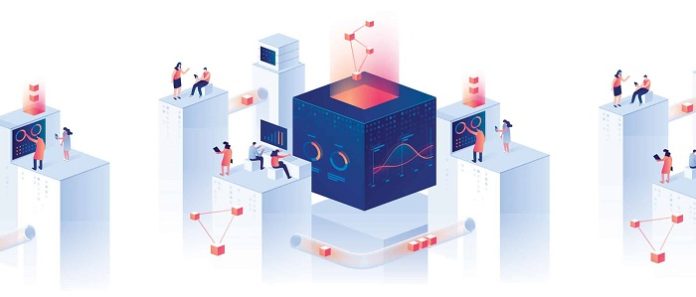In the Information Age, data is the king, and in this age and time, no business can survive without having and regulating relevant data sets. The potentiality of data has been mostly kept in the hands of a few data analysts or data interpretation experts having the skills and understanding necessary to properly organise, crunch and interpret the data for their organisation. This approach was born out of necessity as the majority of employees were completely unaware of the know-how to effectively use the growing flood of data.
But things have changed with the emergence of technologies capable of making data shareable and interpretable for non-data analysts. Data democratisation allows data to pass safely from the hands of a few analysts into the hands of the masses within a company.
To discuss more on how data democratization and intelligent solutions are making businesses more efficient, ELE Times Sub-Editor and correspondent Mayank Vashisht had an insightful conversation with Craig McNeil, Global Business Head – Hi-Tech at QuEST Global. Craig brings over more than 2 decades of industry experience that spans entrepreneurship, management and technology. He is passionate about helping companies innovate and digitally transform their products and services to become the disruptors of their industries, Craig has earned recognition by Gartner, Forrester and HFS as a leader in IoT, Industry 4.0 and Innovation.
Excerpts:

ELE Times: With businesses becoming more data-driven, how can autonomous, intelligent platforms help them move ahead with optimal efficiency?
There is an extraordinary amount of data being generated today. However, very few organizations are able to transform their customer and operational data into a competitive advantage. Automation and intelligent platforms enable businesses to harvest data and generate actionable insights with maximum efficiency. As an example, when a business launches a new product, it needs access to real-time feedback and performance signals. Hearing these marketplace signals followed by fast response is critical for success. The launch team can identify what adjustments are necessary across a wide spectrum of factors such as pricing, distribution, forecasting, and marketing. Such complex insights are hidden in data and even with enough manpower, it is difficult to analyse manually and understand the data better. Another example is in the healthcare sector where there are enormous amounts of siloed data. Just imagine how much we can improve patient healthcare by connecting data across systems, tools and providers and then using intelligent platforms to analyse and deliver insight to assist the medical professionals. The potential to harvest big data is so exciting!
ELE Times: Data democratization means that everybody has access to data and there are no gatekeepers that create a bottleneck at the gateway to the data. As tranquil and harmonious as it may sound, it also amplifies the data security concerns to a much greater magnitude. What is your take on this statement?
This is not how I would look at data democratization. The current reality is that data democratization lies somewhere between a fully closed and a fully open system. I do not see a fully open system being reality any time soon. In all cases, data security is core to business health. Not only is data of proprietary value, protecting data that people or customers have entrusted to an organization is essential for maintaining trust and credibility.
While I believe it’s important to expand data democratization, we must do so with intention and integrity.
ELE Times: What are the latest tech innovations that propel data democratization?
Access to data and storing it, with the ability to crunch and analyse data with speed, is the primary requirement for boosting data democratization. Cloud and Big Data are key enablers of data democratization by ensuring data availability anytime anywhere. Cloud storage helps organizations avoid data silos that once resisted data democratization. Most large organizations have huge amounts of historical data in silos kept in disparate databases or files and the only way to extract this information is through the IT teams. Even after extraction, millions of records can’t be easily processed using simple tools like excel. Augmented Analytics technologies are helpful in such situations which leverage Natural Language Processing (NLP) so that business users and managers can use English or other supported languages to access the data across multiple data sources.
Another technology that helps organizations is Data Virtualization. It helps in creating a virtual database with meaningful names without the need to restructure the old database. This helps in evading needless actions like restructuring datasets, migrating to better data models or newer technologies, which may be expensive when it comes to petabytes of historical data.
QuEST Global’s Glimpze solution is an Augmented Analytics solution that helps to democratize the data within an organization enabling businesses to access data quickly and avoid delays and resources necessary to develop new custom dashboards. Often, business users may not know where to start while investigating an irregularity or finding a specific relationship or pattern. This solution enables exploratory search so that business users can traverse through the data in any direction. For instance, from a specific part, a user can find who is the manufacturer, what other parts are supplied by the same manufacturer, what are the issues reported for the part, any other part having similar issues and more.
ELE Times: How do organizations ensure strong data governance, whilst deciding to adopt data democratization?
The objective of Data Democratization is that data should be accessible to everyone within the organization, with support to analyse it, discover insights and ultimately make faster decisions. However, it’s critical that organizations have a thorough and intentional data governance strategy in place to ensure that the data stays accurate, reliable, and protected while equipping all end-users with the support and resources they need to reap the data’s full benefits. Few ways to look at:
- Leadership that fosters data democratization culture within the organization: Electing data experts to lead the initiative, organizations must empower them to enforce the strategies they are creating.
- Implement well-defined processes and roles to be defined for maintaining information and datasets for specific attributes and information assets.
- Create policies and data accessibility
- Implement Master Data Management (MDM): It is a viable solution for maintaining and solving quality-related issues.
- User Training: To ensure that everyone understands the scope, significance, and processes surrounding the data, it is advisable to invest in systematized, enterprise-wide training.
- User Manual/Documentation: Maintain clear process and documentation surrounding data democratization. The more streamlined organization’s adoption and ongoing implementation are the better will be the results.
- User Access/Permission: A key data governance strategy involves ensuring that end-users can only access data that suits their understanding, skills, and need.
- Lastly, it’s important to implement the right tools.
ELE Times: Please enlist some of the major merits of data democratization for our readers.
It is important for businesses to make their data available across departments if they want to gain a competitive edge. Their workforce with varying expertise can help analyse this data in the best possible way, to make the most meaningful impact on the business. Some of the benefits I feel are:
- It allows a better customer experience by getting a 360° view of the customer feedback.
- Removes roadblocks in accessing and utilizing valuable business data and learning from that.
- Helps in fostering innovation within the organization and results in more empowered employees. Employees can traverse through the data without the need to know technical languages and how data is stored.
- Helps in streamlining the processes leading to operational efficiency: Data democratization fosters a broader understanding across the organization about the company’s information assets, data quality and data governance process.
- Enables faster Decision Making
Mayank Vashisht | Sub Editor | ELE Times








